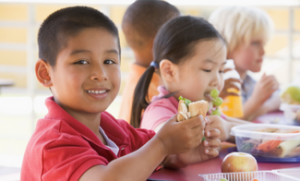 So, your little one starts kindergarten soon. How exciting!
So, your little one starts kindergarten soon. How exciting!
You still have a few months before the school year starts, so now’s the time to make sure students-to-be have the vaccines needed to stay safe as they head into a new chapter of life.
Much attention is rightly paid to COVID-19 these days, but we can’t forget other dangerous, potentially life-changing diseases including measles and whooping cough.
That’s why it’s so important to make sure children are current on their vaccines.
Providers, schools, and immunization programs need to continue following up with students who are not fully vaccinated. Ensuring high vaccination coverage levels helps to protect individuals, families, and communities.
We sympathize with parents and guardians for whom the COVID-19 pandemic has made it more difficult to make well-child visits that include discussions about childhood vaccinations. A first good step back into this important routine is asking your healthcare provider what vaccines your child needs and when. You can also visit azhealth.gov/GetVaccinated for information from ADHS, review the Arizona Guide to Immunizations for Grades K-12, and check out the Centers for Disease Control and Prevention’s Catch-Up Immunization Schedule.
Your child may be eligible for free vaccines through the CDC’s Vaccines for Children Program. Your healthcare provider can tell you if your child qualifies.
In Arizona, vaccine coverage levels continue to drop while exemption levels continue to increase putting our children, families, and communities at risk.
Some of you still have questions about the safety and efficacy of vaccines. That’s OK. Centuries of childhood immunizations have shown vaccines are safe and highly effective. Generations of children in the U.S. have been able to attend school with immune systems ready to fight illness.
So please, take time now to make sure your soon-to-be kindergartner has the protection he or she deserves. Catching up on your child’s scheduled vaccinations guards against potentially serious diseases while protecting other children who may not be able to be vaccinated.










